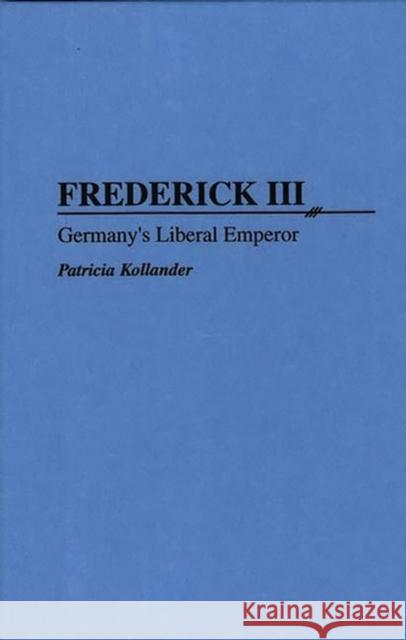Frederick III: Germany's Liberal Emperor » książka
Frederick III: Germany's Liberal Emperor
ISBN-13: 9780313294839 / Angielski / Twarda / 1995 / 240 str.
Many German historians regard Emperor Frederick III (1831-1888) as a liberal sovereign who could have saved German history from its tragic course. Recent historians, however, have challenged the long-held view that liberalism's failure in 19th century Germany presaged Hitler's triumph, claiming that earlier scholars have overlooked liberalism's positive contributions to German history. This book reassesses Frederick III's contribution to the liberal movement. Using documents recently made available from the Hessische Hausstiftung, the author considers the question of whether Frederick abetted the liberal movement's successes or was part of its tragic history.
As crown prince, Frederick maintained ties with prominent liberals and rejected Otto von Bismarck's conservative domestic and foreign policies. His liberal impulses were strengthened by his marriage to the Queen of England's daughter, Princess Victoria. But when Frederick came to the throne in 1888, he died after only 99 days. Many historians consider his untimely death the swan song of German liberalism. Kollander finds that the documents show Frederick to be a constitutional liberal who fought to preserve the constitution-the basis of liberal political power-from subversion by the conservatives. However, he only condoned liberal reform on the basis of the constitutional status quo, rejecting his wife's wish to see British political institutions adopted in Germany. Although Frederick contributed to the survival of liberalism as a political force, the author concludes, the extent of his liberal views have been exaggerated by many historians.











